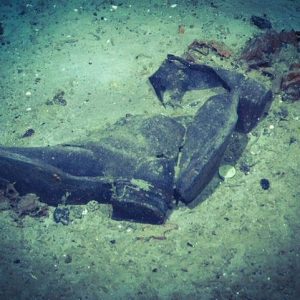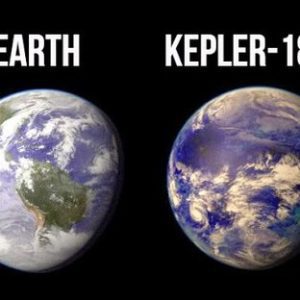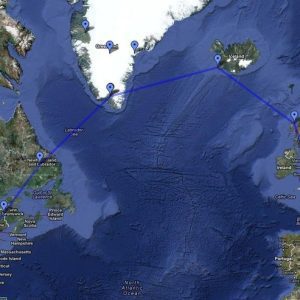It is common knowledge that if you are camping in the wilderness you should light a fire to keep any dangerous wild animals at bay.
However, this is not necessarily correct. In fact it has been shown that wolves and bears will approach an unattended fire, even if they would [obviously] not directly interact with it.
It is far more likely that the reason wild animals stay away from a campfire has more to do with the human sat next to the fire, than the fire itself.
So-called “firehawks” (mainly kites and falcons found in Australia, Africa and other regions) are known to pick up burning branches and drop them in dry brush to spread fires. This causes small animals to flee the brush and become easy pickings for the birds of prey.



Avid hiker here. Im going to go in a bit of a different direction with this. You asked which animal(s) are not afraid of fire. I would say most are except where they’re learned to not be (and this is a serious, and growing, problem). I’ll explain…
Ive hiked for years now in the Alberta & British Columbia Rocky Mountains (very rugged and natural terrain with a lot of amazing wildlife – its a very area) I can tell you a fire will make a difference [in most cases] to a young, “uneducated/inexperienced” animal. However the problem lies in where people leave trash, food or purposely interact with the animals on a daily basis.
This makes them accustomed to human interaction and they begin to rely on campsites, fire pits or places that people frequent or reliably throw away trash (townsites, garbage dumps, trash bins, etc) as a food source – or become simply unafraid of people.
Generally speaking, most animals, even apex predators like wolves, grizzly bears etc, will avoid a human or a fire, but if they associate it with a food source you now have a serious problem because to them that food is life and they will do anything to protect it or access it, a human or a fire present will not make a difference.
Theyre not going to purposely burn themselves to get it, but a fire simply being present is not going to matter. Ive seen bears get up on picnic tables with burning campstoves on them directly beside fires to get at the food. Ive had the privilege to hike some of the most beautiful and sought after Canadian trails in the world and been absolutely shocked at the amount of garbage people have left behind. Its very sad.
You expect to go into this “pristine” wilderness and what you find is trash left behind by the people before you. And not a little bit, its a lot.
You have to understand that any animal that becomes accustomed to humans or looks to their trash as a food source and is no longer afraid of humans or fire, is a dead animal. Its a matter of time before they lash out or hurt someone and then are deemed a ‘danger’.
Sadly, theyre just doing what they need to do to survive – which is something we as humans have lost touch with. We live in houses, apart from the elements, buy our food from the store, we do not need to forage for it, nor protect it from other animals. We no longer understand or relate to these behaviours.
Animals deemed a ‘danger’ to humans are removed from their habitat and either relocated or shot and killed. This is a huge loss. A life is life and all life is precious. Sadly, humans often dont appreciate or value lives outside of human life (and some dont even appreciate that, but I digress).
Unfortunately, even relocating an animal comes with risks. We often think of this as being the kinder option, but animals learn and become familiar with their home turf. They defend it from other animals and when you relocate them, you are moving them to somewhere they are not familiar with, possibly in direct conflict with another animal they might fight with and they are removed from their familiar food sources.
For example, deer will teach their young what plants are safe to eat (contrary to popular belief it is not ‘instinct’ most plants on earth are some level of poisonous and they, like people, need to learn which are safe. Studies have shown on a smaller level that guinea pigs – wild or domestic – will only eat plants they have seen their mothers eat … and thats your random guinea pig fact for today 😉 ).
Grizzly bears will show their cubs where to find local food sources like moth larvae in the high alpine peaks, which are great protein. They retain the information for future reliance, they dont just ‘stumble’ across them one day. We dismiss the fact that animals learn and this circles back to the issue of trash and animals learning to become unfraid of people, because we are inevitably teaching them this.
If you are open to learning more about the impacts of humans on animals, I encourage you to listen to the podcast Bear 148 by the Narwhal. Its short, but an excellent. It hits all the major points and if you are truly curious about these issues, it will give you some good beginner insight. Undercurrent | The Narwhal .
Another recent example is of the rare albino grizzly bear recently hit by a car in Yoho national park [2024] (after her first 2 cubs were also struck and hit by cars on the same highway) Beyond Local: Cubs of rare white grizzly bear struck and killed in Yoho National Park. While not trash related, it is still another example of human impact and a tragic loss.
Finally, if you are traveling to another country (like Canada or the US) do not get out of your car to photograph the wildlife. Its EXTREMELY dangerous, and youre contributing to the problem by making the wildlife accustomed to people. Buy an extended lens for your phone on Amazon and zoom in, pull over a good distance away, snap your pic. You’ll still get a great photo and you wont contribute to the problem… or get stomped to death by that elk.
But I’ll try to loop this back to about fire related info. Essentially, this is why it is so important to dispose of your trash correctly. Burning it in a fire pit does not remove it, it still becomes an animal attractant. Dont leave your trash on the ground or in a fire pit.
The proper method is to pack your trash out. Just explaining this simply, when packing food or water for a camping trip, look for items where the leftover trash is easy to compact/compress down and is very light. Avoid cans or tins, theyre heavy and stinky and annoying.
You can find lots of great freeze dried food or pre-made meals these days on Amazon or in a backpacking store like REI or MEC that I promise are way tastier than your can of bland tuna (um plus, other backpackers are gona look at your cans and think your batshit crazy… even if theyre too polite to say it lol). Store this in an extra ziplock bag (or 2 if you need it), or there are reusuable bags for this purpose now too. Use a reusable water bottle or camelback (water bag).
A water bag will actually help to keep your water cooler for longer in your back pack too. After your hike dispose of your trash in a proper garbage bin… where the animals are safely protected from it. Its that easy. Congratulations, youre a backpacking foodie pro and youve saved a bear, wolf or fellow human <3.






